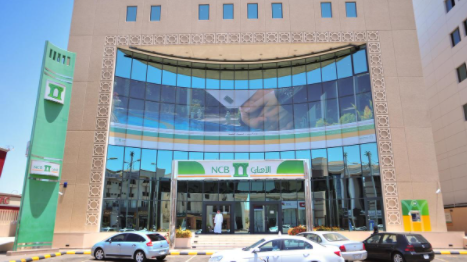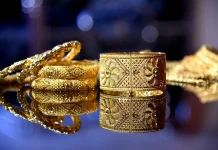Tie-up will create the third-largest bank in the Arab world, with $223bn in assets
National Commercial Bank, Saudi Arabia’s biggest lender, agreed to merge with Samba Financial Group in a deal that will create the Arab world’s third-biggest banking entity with assets worth $223 billion.
Samba shareholders will receive 0.739 newly issued NCB shares in exchange for each Samba share they hold, according to the definitive terms agreed on by the two lenders, NCB said in a statement to the Tadawul Stock Exchange, where its shares trade.
Based on the exchange ratio and the closing price of 38.50 Saudi riyals ($10.24) per NCB share on October 8 – the last business day before the announcement – each Samba share is valued at 28.45 riyals and Samba’s issued ordinary share capital at about 55.7bn riyals, according to NCB.
This ratio represents a premium of 3.5 per cent on Samba’s closing share price of 27.50 riyals on the same day, it said.
“NCB would also like to announce its firm intention to proceed with the merger,” the lender said in the bourse filing.
The merger will result in all Samba assets and liabilities being transferred to NCB, it said.
Once the transaction is complete, only NCB will survive while Samba “will cease to exist”. Its shares will be cancelled and new shares in NCB will be issued to its shareholders.
The new lender will have its headquarters in Riyadh, with Ammar Alkhudairy tipped to become chairman while Saeed Al-Ghamdi managing director and group chief executive.
“It’s an interesting move and I think it’s warranted,” said Ramzi Abu Khadra, a veteran banker in the kingdom and the region. “There is a lot of consolidation happening globally on the back of economies of scale, lowering costs, technology and compliance. It’s a wave that has hit the world in many places.”
The creation of a much larger institution gives the merged bank greater pricing power over loans and deposits, EFG Hermes said in June.
A deal also increases cross-selling potential, allowing the lender to devote more resources towards digitisation and increasing its counterparty lending limits.
On top of this, a merger “potentially unlocks cost synergies”, EFG Hermes said.
Hettish Karmani, head of research at U-Capital in Muscat, said smaller banks are expected to follow the merger and acquisition route to emerge stronger in the face of Covid-19 headwinds.
“The [NCB and Samba] merger will create an [entity that has] roughly one third of all banking assets in kingdom … the bigger and stronger the entity, the more flows they will generate from foreign institutional investors, which will aid in the growth, efficiency and profile of the market,” Mr Karmani said.
The two lenders said on June 25 that they had agreed on a framework for a reciprocal due diligence process and a definitive and binding agreement for the tie-up within four months.
The merged entity will have a combined equity base of $32bn and will control a quarter of the kingdom’s retail and wholesale banking market.
However, the deal is subject to customary regulatory and shareholder approval.
Mr Al-Ghamdi, NCB’s current chairman, said the kingdom is currently undergoing a historic transformation.
“Such a transformation requires a robust financial services sector, especially highly capitalised, resilient banks that can fund economic development, as well as support Saudi Arabia’s trade and capital flows with the region and the rest of the world,” he said.
“Our ambition is to create a national champion that can [help bring about] the transformation envisaged under Vision 2030 and create a pioneer for next-generation banking services that nurtures tomorrow’s industry leaders.”
Both NCB and Samba have government entities as significant shareholders. Upon completion of the merger, NCB’s existing shareholders will own 67.4 per cent of the combined entity and Samba’s shareholders will own 32.6 per cent.
The biggest shareholders in the new lender will be the kingdom’s sovereign wealth fund, the Public Investment Fund with a 37.2 per cent stake. The Public Pension Agency will control 7.4 per cent and the General Organisation for Social Insurance will own 5.8 per cent.
“This merger process marks the start of a new era for Saudi banking,” said Mr Alkhudairy, Samba Financial Group’s current chairman.
“We are focused on making sure that the combined and larger bank comes together seamlessly to serve our customers, partners, investors and talent across both teams.”




